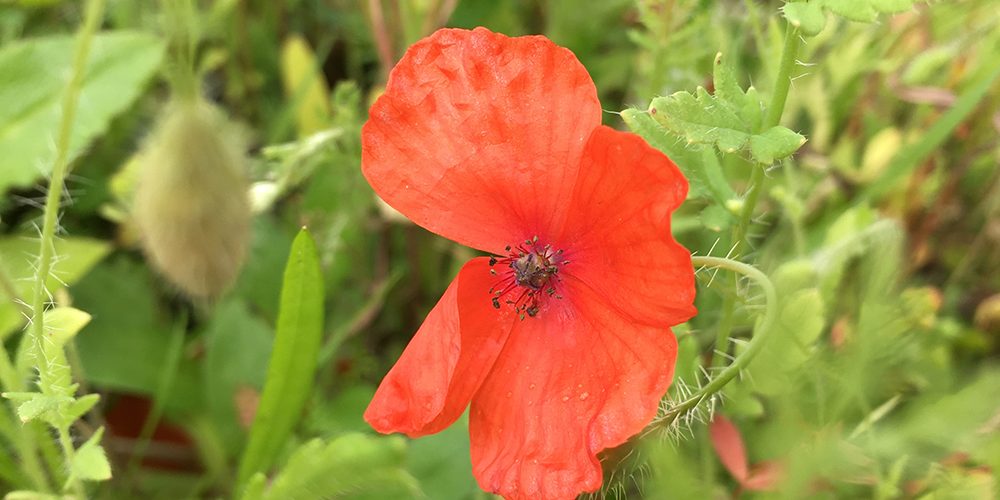One of the tricky things with starting a wildflower meadow is getting the seedlings to grow ahead of the grass. Using wildflower plug plants makes this a little easier than sowing seeds. Here’s the lowdown for starting a wildflower patch in grass this spring.
- Cut the grass as short as you can as close to planting time as possible
If you can cut the grass the day before the plugs arrive, then this is ideal. Remember that we will send you an email update a few days before your order is dispatched, and again the day it is dispatched, so you should have plenty of warning. - Try to plant after rainfall, when the ground is reasonably moist
This will make it a lot easier for you to plant, and importantly it will give the plugs a better chance at getting established quickly. If the plants arrive during a dry spell, then you can water the patch of grass before planting, but obviously this is a bit of an effort if you have a large space! - If you can’t plant straight away, temporarily plant the plugs…
You can use the punnets that your plug plants arrive in to temporarily plant them in a little compost. They will be fine in this for several days until you have time to sort the plot out etc. - Don’t feed the soil
It is best NOT to add compost or fertiliser to the soil when you plant your wildflowers – they will be competing with the grass which will get a major boost if you add any fertiliser etc, so it is better not to do this at any point. - Cut grass once it reaches 100mm
You can set your mower to 70mm and cut the grass if it outgrows your plug plants. Do this once it reaches 100mm tall. Rake up the cuttings so that the plants have maximum access to sunlight. You can do this once or twice in spring, but leave to grow during the summer (e.g. from mid-June onwards)
At the end of autumn, let the wildflowers produce seedheads before you cut the meadow back. At this time of year, there is no need to rake was the seeds need a chance to bed in for the following year.

